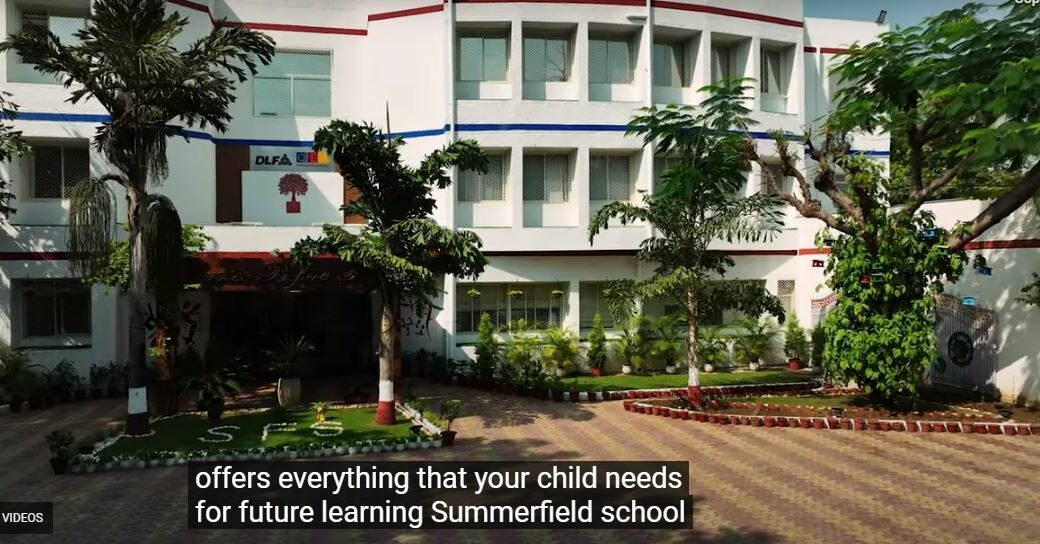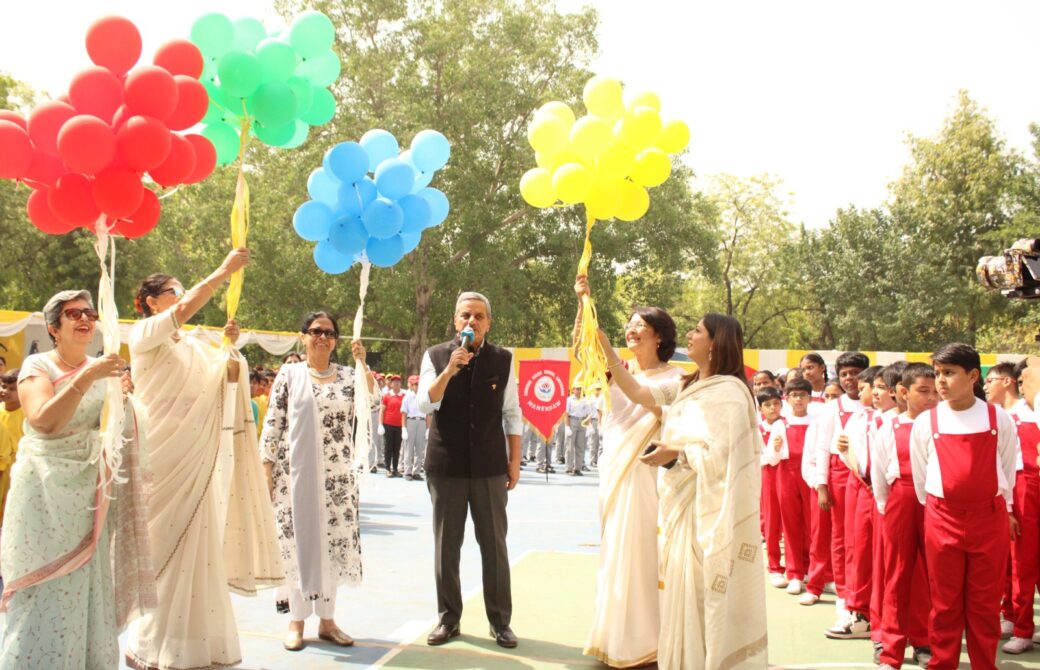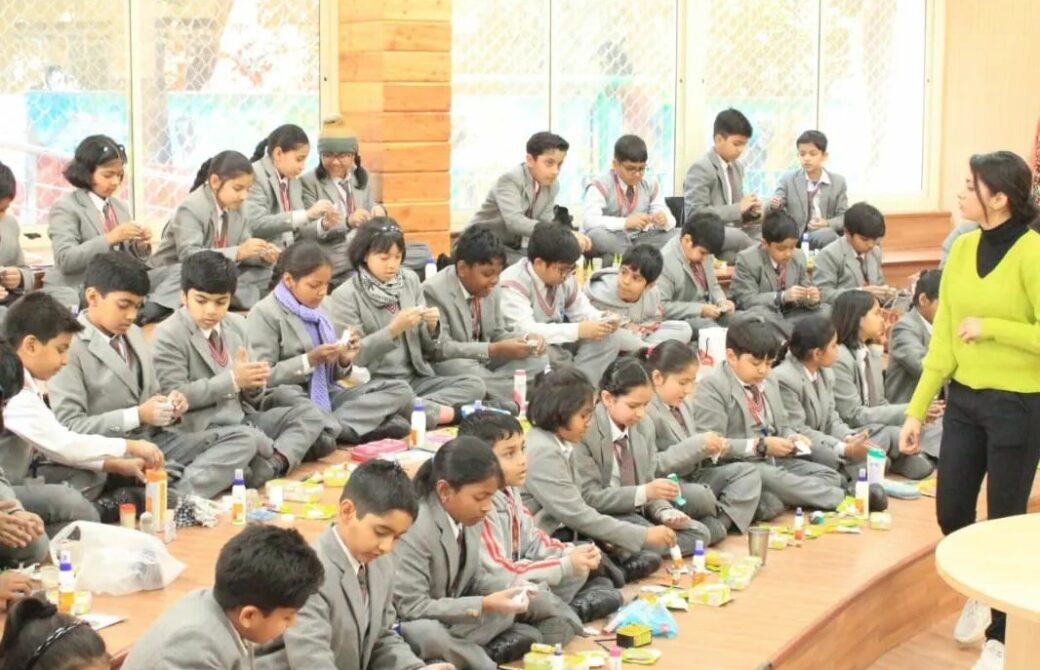Introduction:
In today’s fast-changing world, education goes far beyond textbooks and exams. At Summer Fields School, the Best School in Gurugram where the right school doesn’t just focus on academic excellence — it builds essential life skills, nurtures emotional intelligence, encourages curiosity, and prepares children to thrive in a dynamic global environment. Choosing a school that does all of this can be a challenge, but it’s also one of the most rewarding decisions a parent will ever make.
Among the CBSE Schools, some institutions stand out for their commitment to holistic development — balancing academic rigor with creativity, empathy, and innovation. Let’s explore what truly makes a school future-ready and how you can identify one that will empower your child to succeed beyond the classroom.
About Us:
Choosing the right school means seeking one that shapes future inventors, global thinkers and empathetic leaders. At Summer Fields, we champion this vision through smart-classrooms, coding and robotics clubs, global exchange links and entrepreneurial challenges that reflect the evolving world. Students also benefit from robust arts, music, debate and outdoor education programmes that sharpen adaptability and self-expression. Each year we host a Future Skills Symposium and Career-Awareness Week to expand horizons. Experienced teachers provide tailored coaching, while inclusive campus events ensure every child has a voice and a stage. By prioritizing innovation, collaboration and values alongside academics, we equip students not just for the next exam – but for a dynamic, unpredictable future with confidence.
1. Understanding What “Future-Ready Education” Really Means
A future-ready education equips students with skills, mindsets, and values that extend beyond marks or grades. It focuses on adaptability, digital fluency, collaboration, and ethical awareness. With industries evolving and technology reshaping careers, schools must evolve too.
The CBSE Schools understand this transformation well. They don’t just teach — they inspire. Their teaching methodology blends conceptual clarity with creativity, helping students become independent thinkers, confident communicators, and responsible citizens.
A future-ready school ensures that its students can:
- Solve real-world problems with critical and creative thinking.
- Communicate ideas confidently across diverse platforms.
- Collaborate with others while respecting differences.
- Use technology as a tool for innovation, not distraction.
- Lead with empathy, responsibility, and ethical understanding.
2. Strong Academic Foundation — But Not Just That
A strong academic foundation remains essential, but the way it is delivered makes all the difference. Top institutions affiliated with the CBSE curriculum balance theory with practice, ensuring that students not only memorize but also understand and apply what they learn.
What separates the CBSE Schools is their approach — they make learning experiential. Concepts in science are explored through experiments, mathematics is linked to real-life problem solving, and languages are taught as tools for expression rather than rote memorization.
Moreover, schools that prepare students for the future ensure that their academic framework aligns with national and global standards. They adopt learner-centered pedagogy, use data-driven assessments, and foster self-directed learning habits that stay with students for life.
3. Nurturing Curiosity and a Growth Mindset
Education is not about knowing all the answers; it’s about asking the right questions. A school that prepares students for the future cultivates curiosity. It helps them explore “why” and “how” — not just “what.”
Schools recognized among the CBSE Schools are known for creating such environments. They encourage students to explore ideas through inquiry-based projects, design thinking challenges, and open discussions. Teachers act as facilitators, guiding learners to discover answers independently.
This approach nurtures a growth mindset — the belief that intelligence and talent can be developed through effort, good strategies, and feedback. Students learn resilience, persistence, and adaptability — qualities that are vital in a world where career paths and technologies evolve constantly.
4. Integrating Technology and Innovation
The world our children are stepping into is powered by technology. From artificial intelligence to robotics, digital transformation is shaping every profession. Therefore, schools that prepare students for the future seamlessly integrate technology into the learning process.
The CBSE Schools leverage smart classrooms, coding clubs, robotics labs, and AI-enabled learning platforms. But more importantly, they teach students how to use technology creatively and responsibly.
Digital literacy becomes more than just a skill — it becomes a mindset. Students learn to use technology for research, collaboration, and problem-solving, not merely as entertainment. When guided properly, such exposure prepares them to thrive in higher education and future workplaces where digital adaptability will be indispensable.
5. Emphasis on Emotional and Social Development
Academic intelligence alone cannot guarantee success in life. Emotional and social intelligence — the ability to understand oneself and relate to others — plays an equally critical role.
A future-ready school pays close attention to the emotional well-being of its students. It fosters empathy, teamwork, and mindfulness through counseling programs, life-skills workshops, and peer interaction activities. The CBSE Schools incorporate these values deeply within their ethos, ensuring that every learner feels heard, valued, and supported.
Through sports, performing arts, and community engagement initiatives, students learn compassion, responsibility, and respect — values that shape their character and guide them through adulthood.
6. Encouraging Creativity and Innovation
Tomorrow’s leaders will need more than technical expertise — they’ll need imagination and the courage to innovate. Schools that prepare students for the future nurture this creative spark early on.
Institutions ranked among the CBSE Schools provide ample opportunities for students to express themselves through art, music, dance, theatre, and design. These experiences help learners think divergently, embrace challenges, and see the world through multiple perspectives.
Innovation-driven schools encourage interdisciplinary learning — blending science with design, technology with art, and literature with social science. This integrative approach mirrors the real world, where problems are complex and require both analytical and creative solutions.
7. Global Exposure and Intercultural Understanding
In an interconnected world, education must prepare students to think globally while acting locally. Schools today have the responsibility to nurture global citizens — individuals who are aware, empathetic, and collaborative across cultures.
The CBSE Schools often partner with international institutions, run global exchange programs, and organize Model United Nations (MUNs) and international Olympiads. Such experiences broaden students’ horizons, teaching them about diversity, inclusivity, and global challenges.
When children learn to appreciate multiple cultures, they become better communicators and problem-solvers, ready to engage in international conversations and careers.
8. Focus on Co-Curricular Excellence
A well-rounded education goes beyond academics. Co-curricular activities play a crucial role in shaping a student’s personality, leadership skills, and emotional intelligence.
The CBSE Schools are known for offering a vibrant mix of activities — from sports and music to debating, public speaking, and community service. These platforms help students explore their interests, gain confidence, and develop a sense of purpose.
Sports cultivate teamwork and discipline, drama enhances communication and empathy, and volunteer work builds compassion and civic responsibility. When students find balance in academics and co-curricular pursuits, they grow into confident, well-rounded individuals ready to take on life’s challenges.
9. Strong Faculty and Supportive Learning Environment
Behind every successful student stands an inspiring teacher. The quality of a school’s faculty often determines the quality of its education. Schools that focus on future readiness invest heavily in teacher training and continuous professional development.
The CBSE Schools employ educators who are mentors as much as instructors. They are approachable, empathetic, and skilled in modern pedagogy. Teachers use differentiated instruction — recognizing that every child learns differently — and employ technology to personalize learning experiences.
Moreover, a nurturing environment matters just as much as academic resources. A safe, inclusive, and respectful school culture allows students to express themselves freely and learn without fear. Such emotional security fuels creativity, motivation, and long-term success.
10. Values and Ethics as the Core of Education
As we prepare students for a future filled with opportunity and uncertainty, instilling a strong moral compass becomes essential. Education rooted in values like honesty, respect, compassion, and perseverance ensures that success doesn’t come at the cost of integrity.
Many of the CBSE Schools weave ethical education into daily life — through morning assemblies, social service programs, and leadership initiatives. Students learn that success is not just about achievement but also about contribution — about how they make a positive difference in the world.
When values and ethics form the foundation of education, academic excellence becomes more meaningful and sustainable.
11. Future-Ready Infrastructure and Learning Spaces
The physical environment of a school plays a significant role in shaping the learning experience. Future-ready schools design their campuses to inspire exploration, collaboration, and creativity.
Institutions recognized among the CBSE Schools feature advanced science and computer labs, innovation hubs, maker spaces, libraries, and sports complexes. Their classrooms are equipped with interactive boards and digital tools that support modern pedagogical practices.
These facilities don’t just add to aesthetics — they create a dynamic ecosystem where learning becomes experiential and engaging.
12. Building Lifelong Learners
The most successful schools aren’t those that produce toppers; they are those that produce lifelong learners. In a rapidly evolving world, knowledge will keep changing — what matters is the ability to keep learning, unlearning, and relearning.
The encourage this mindset through research projects, internships, and interdisciplinary programs that connect learning to real-life applications. Students leave school not just with degrees, but with curiosity, adaptability, and self-confidence — the hallmarks of lifelong success.
13. Parental Involvement and Community Partnerships
A school’s relationship with parents is an integral part of its success model. Future-ready schools maintain open communication with families, involving them in their child’s growth and progress.
The CBSE Schools host parent workshops, interactive sessions, and collaborative events that strengthen the school-home partnership. When educators and parents work together, students receive consistent guidance and encouragement.
Community involvement also enriches education — schools partner with NGOs, industries, and professionals to bring real-world learning into classrooms, reinforcing social responsibility and awareness.
Conclusion:
Choosing the right school means choosing the right foundation for your child’s future. At Summer Fields School, the Top Schools in Gurugram where it’s not about the biggest campus or the longest list of achievements — it’s about how deeply a school prepares its students for life.
A truly future-ready institution nurtures intellectual curiosity, emotional intelligence, creativity, and ethical strength — qualities that help students lead with purpose and passion.
Among the CBSE Schools, some schools exemplify this vision through innovative teaching, holistic learning environments, and a relentless focus on developing global citizens who can think critically, act compassionately, and adapt courageously.
FAQs:
Q. 1 What defines a future-ready school?
Ans : A school that blends technology, creativity, and global awareness with strong academic foundations.
Q. 2 How does technology integration help students?
Ans : It builds digital literacy and analytical thinking—skills vital in tomorrow’s workplaces.
Q. 3 What future-focused subjects should parents look for?
Ans : STEM, robotics, environmental studies, and global citizenship programs are key future-oriented disciplines.
Q. 4 How do schools nurture innovation among students?
Ans : By encouraging hands-on projects, design thinking, and collaborative problem-solving.
Q. 5 Why are leadership opportunities important for future readiness?
Ans : They develop accountability, communication, and the confidence to take initiative in any setting.
Q. 6 How do the CBSE schools ensure adaptability in learning?
Ans : They combine traditional values with modern teaching methods to prepare students for changing global trends.







